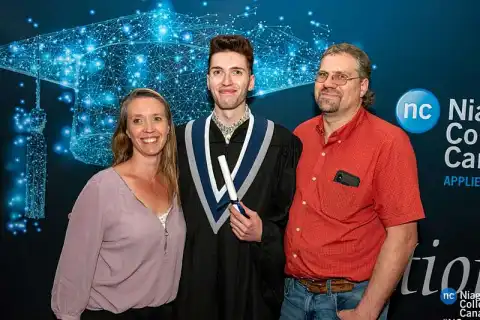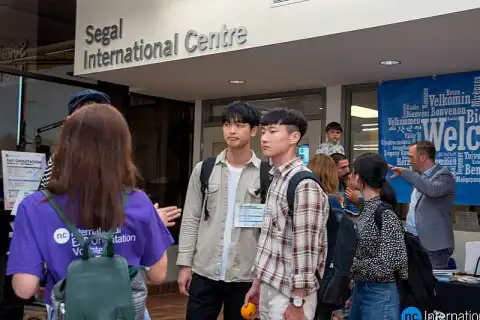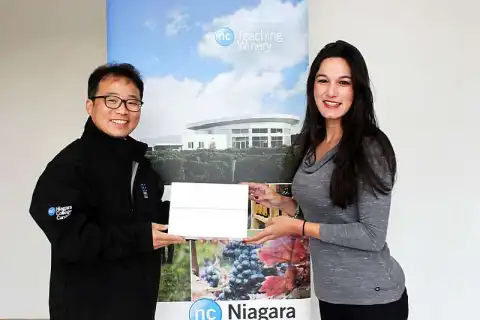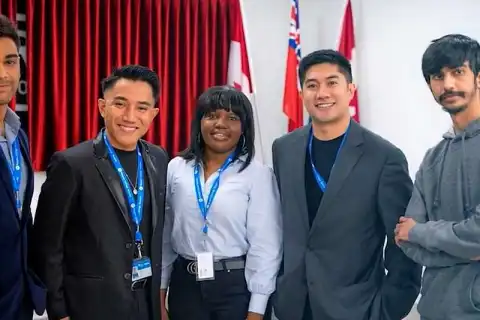Diploma - Recreation Therapy (Fast Track)
- 2 years
- Duration
- 36,417 CAD
- Price
- Rolling admission
- Start
- Rolling admission
- Deadline
- Diploma
- Degree
- Campus
- Format
- Welland / Canada
- Location
Program description
Put yourself on the fast track! Complete your Recreation Therapy diploma in four terms. Students complete terms one through four as a continuous program with no breaks.
Are you looking for a job where you can help people have a better quality of life? You will use meaningful recreation and leisure education, counselling, and experiences as a Recreation Therapy Professional to promote, restore, rehabilitate, and/or maintain quality of life and well-being. Therapeutic recreation promotes the growth of strengths while also addressing social, emotional, physical, spiritual, and cognitive needs.
Highlights
- Get specialized training and certifications to meet the needs of an aging population, such as:
- Certificate in DementiAbility Methods: The Montessori Way
- Dementia communication tips and tools
- Instructor Certification in Nordic Pole Walking
- Variety Village offers a Level 1 Inclusion Certificate.
- Obtain over 430 hours of practical field placement experience with the assistance of a field placement officer.
- Take advantage of Therapeutic Recreation Ontario student membership.
- Upon graduation, you will be eligible for your R/TRO Dip designation.
Program structure
Term One
- Leadership in Society
- Essential Communication Skills for Community Services
- Therapeutic Recreation for Diverse Abilities
- Professionalism in Therapeutic Recreation
- Foundations of Therapeutic Recreation
- Developmental Psychology
Term Two
- Therapeutic Recreation Intervention and Program Planning
- Assessment and Documentation in Therapeutic Recreation
- Therapeutic Approaches for an Aging Population
- Applied Positive Strategies in Therapeutic Recreation
- Therapeutic Recreation Program Delivery
- Introduction to Interprofessional Education and Practice
Term Three
- Effective Helping Skills in Therapeutic Recreation
- Field Placement I
- Technology and Therapeutic Recreation
- Leisure Education
- Therapeutic Recreation Facilitation Techniques
- Mental Illness, Addiction and Recovery: A Therapeutic Recreation Perspective
Term Four
- Issues and Trends in Therapeutic Recreation
- Field Placement II
- Integrative Seminar
- Research and Evaluation in Therapeutic Recreation
- Community Practice in Therapeutic Recreation
Price
Level One
- Tuition - 7,575 CAD
- Ancillary Fees - 2,040 CAD
- Material Fees - 80 CAD
- Level Total - 9,695 CAD
Level Two
- Tuition - 7,575 CAD
- Ancillary Fees - 1,005 CAD
- Material Fees - 255 CAD
- Level Total - 8,835 CAD
Level Three
- Tuition - 7,575 CAD
- Ancillary Fees - 961 CAD
- Material Fees - 60 CAD
- Level Total - 8,596 CAD
Year One Total: 27,126 CAD
Level Four
- Tuition - 7,575 CAD
- Ancillary Fees - 1,676 CAD
- Material Fees - 40 CAD
- Level Total - 9,291 CAD
Year Two Total: 9,291 CAD
Estimated Program Total: 36,417 CAD
Requirements for applicants
Admission Requirements
- Ontario Secondary School Diploma (OSSD), or equivalent including the following required course(s):
- English – any Grade 12 (C) or (U), or equivalent
- Related volunteer and or cooperative/work experience
- Leadership and Peer Support – Grade 11 (O)
- Dynamics of Human Relationships – Grade 11 (O)
- Human Development Throughout the Lifespan – Grade 12 (C) or (U)
- Challenge and Change in Society – Grade 12 (U)
- Recreation and Healthy Active Living – Grade 12 (C) or (U)
Language Proficiency Admission Requirements
You will be required to provide proof of one or more of the following:
- Niagara College Mature Student Test for English
- Grade 12 English at the C or U level (Ontario High School Curriculum)
- ACE English (Academic Upgrading)
- International Credential Assessment for studies outside of Canada
If English is your subsequent language, Niagara College (for the purposes of admission to standard non-competitive programs) will also accept these English Language Test Scores
- Cambridge English Exams (B2 First/FCE, C1 Advanced/CAE or C2 Proficiency/CPE) - 169 – No skill under 162
- International English Language Testing System (IELTS) including Indicator Test** 6.0 – No individual band under 5.5.
- Duolingo Language Test - Overall score of 105+, with no individual score under 95
- Internet-based (IBT) Test of English as a Foreign Language (TOEFL) including Special Home Edition Test - Paper-based: 500, Computer based: 173, iBT: 79, Minimum: 20 Writing, 20 Speaking
- Pearson Test of English (PTE) - 46+, with no individual skill under 36
- Canadian Academic English Language Test (CAEL) including CAEL Online Proficiency Test - 60 – No individual band under 50.
- Niagara College’s English for Academic Preparation program (EAP) - Completion of Level 5 English for Academic Preparation (EAP) program with 70% and no individual grade under 50%
About the university

Niagara College, with campuses in Welland and Niagara-on-the-Lake, is conveniently located in the center of the Niagara Region, only minutes away from one of the world's most popular tourist destinations. The college is home to more than 130 cutting-edge academic programs.
All of our campuses are home to state-of-the-art facilities and innovative teaching methods, including small class sizes, cutting-edge research, and real-world application.
These courses put students in an interactive and technologically advanced learning environment. Our grads are well-versed in multiple cultures, quick learners, and risk takers who push the envelope of what's possible in business in Niagara, Canada, and beyond.
Why Niagara College?
- 130+ certificate, diploma, apprenticeship and Bachelor's Degree programs
- 600+ credit, vocational and general interest courses
- We care about you and want you to succeed - employers report high levels of satisfaction with the skills and knowledge possessed by NC graduates.
- Building a sustainable future
- More than seven thousand students per year participate in cooperative education, field placements, internships, learning enterprises, apprenticeships, clinical placements, course-based research, and fieldwork in about one hundred different academic disciplines.





